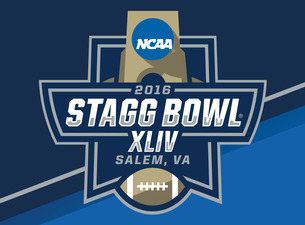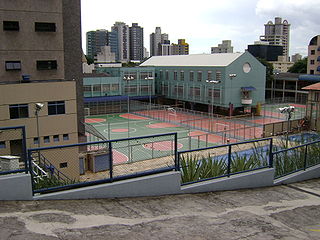Related Research Articles

Big Brother is a Dutch reality competition television franchise created by John de Mol Jr., first broadcast in the Netherlands in 1999 and subsequently syndicated internationally. The show features contestants called "housemates" or "HouseGuests" who live together in a specially constructed house that is isolated from the outside world. The name is inspired by Big Brother from George Orwell's novel Nineteen Eighty-Four, and the housemates are continuously monitored during their stay in the house by live television cameras as well as personal audio microphones. Throughout the course of the competition, they are voted out until only one remains and wins the cash prize.

Diving is the sport of jumping or falling into water from a platform or springboard, usually while performing acrobatics. Diving is an internationally recognized sport that is part of the Olympic Games. In addition, unstructured and non-competitive diving is a recreational pastime.
The Eurovision Song Contest, often known simply as Eurovision or by its initialism ESC, is an international song competition organised annually by the European Broadcasting Union. Each participating country submits an original song to be performed live and transmitted to national broadcasters via the Eurovision and Euroradio networks, with competing countries then casting votes for the other countries' songs to determine a winner.
The 1968 Summer Olympics, officially known as the Games of the XIX Olympiad and commonly known as Mexico 1968, were an international multi-sport event held from 12 to 27 October 1968 in Mexico City, Mexico. These were the first Olympic Games to be staged in Latin America and the first to be staged in a Spanish-speaking country. They were also the first Games to use an all-weather (smooth) track for track and field events instead of the traditional cinder track, as well as the first example of the Olympics exclusively using electronic timekeeping equipment.

An athlete is a person who competes in one or more sports involving physical strength, speed, power, or endurance.

Competition is a rivalry where two or more parties strive for a common goal which cannot be shared: where one's gain is the other's loss. Competition can arise between entities such as organisms, individuals, economic and social groups, etc. The rivalry can be over attainment of any exclusive goal, including recognition.

The Davis Cup is the premier international team event in men's tennis. It is run by the International Tennis Federation (ITF) and is contested annually between teams from over 140 competing countries. It is described by the organisers as the "World Cup of Tennis", and the winners are referred to as the World Champions. The competition began in 1900 as a challenge between Great Britain and the United States. By 2023, 155 nations entered teams into the competition.

The NCAA Division III Football Championship is an American college football tournament played annually to determine a champion at the NCAA Division III level. It was first held in 1973, as a single-elimination playoff with eight teams. Over the past 50 seasons, the number of participants has grown to 32, with the current bracket size dating from 2005. In 2023, 28 playoff bids went to conference champions via automatic qualification, leaving just four places for at-large selections.
The English football league system, also known as the football pyramid, is a series of interconnected leagues for men's association football clubs in England, with five teams from Wales, one from Guernsey, one from Jersey and one from the Isle of Man also competing. The system has a hierarchical format with promotion and relegation between leagues at different levels, allowing even the smallest club the theoretical possibility of ultimately rising to the very top of the system, the Premier League. Below that are levels 2–4 organised by the English Football League, then the National League System from levels 5–10 administered by the FA, and thereafter Regional feeder leagues run by relevant county FAs on an ad hoc basis. It also often happens that the Premier Division of a Regional Feeder League has its constitution given to it by the FA. They have to accept it or appeal but can not reject it at an AGM.

NCAA Division I (D-I) is the highest level of intercollegiate athletics sanctioned by the National Collegiate Athletic Association (NCAA) in the United States, which accepts players globally. D-I schools include the major collegiate athletic powers, with large budgets, more elaborate facilities and more athletic scholarships than Divisions II and III as well as many smaller schools committed to the highest level of intercollegiate competition.

The English Football League One, known as Sky Bet League One for sponsorship purposes or simply League One in England, is the second-highest division of the English Football League and the third tier overall in the English football league system.

The Challenge is a reality competition show on MTV that is a spin-off of two of the network's reality shows, The Real World and Road Rules. Premiering in 1998, it originally featured alumni from these two shows, casting for The Challenge has slowly expanded to include contestants who debuted on The Challenge itself, alumni from other MTV franchises including Are You the One?, Ex on the Beach, Geordie Shore, siblings and friends, and from other non-MTV shows, competitions, and modeling. The contestants compete against one another in various extreme challenges to avoid elimination. The winners of the final challenge win the competition and typically share a large cash prize. The Challenge is currently hosted by T. J. Lavin.

Gymnastics events have been contested at every Summer Olympic Games since the birth of the modern Olympic movement at the 1896 Summer Olympics in Athens. For 32 years, only men were allowed to compete. Beginning at the 1928 Summer Olympics in Amsterdam, women were allowed to compete in artistic gymnastics events as well. Rhythmic gymnastics events were introduced at the 1984 Summer Olympics in Los Angeles, and trampoline events were added at the 2000 Summer Olympics in Sydney.

The all-time medal table for all Olympic Games from 1896 to 2022, including Summer Olympic Games, Winter Olympic Games, and a combined total of both, is tabulated below. These Olympic medal counts do not include the 1906 Intercalated Games which are no longer recognized by the International Olympic Committee (IOC) as official Games. The IOC itself does not publish all-time tables, and publishes unofficial tables only per single Games. This table was thus compiled by adding up single entries from the IOC database.
Redshirt, in United States college athletics, is a delay or suspension of an athlete's participation in order to lengthen their period of eligibility. Typically, a student's athletic eligibility in a given sport is four seasons, aligning with the four years of academic classes typically required to earn a bachelor's degree at an American college or university. However, in a redshirt year, student athletes may attend classes at the college or university, practice with an athletic team, and "suit up" for play – but they may compete in only a limited number of games. Using this mechanism, a student athlete [traditionally] has at most five academic years to use the four years of eligibility, thus becoming what is termed a fifth-year senior. Due to the COVID-19 pandemic, an additional year of eligibility was granted to student athletes by the NCAA who met a certain criteria. Student athletes who qualified, had up to six academic years to make use of their four years of eligibility, taking into consideration the extra year provided due to exceptional circumstances.

A sports club or sporting club, sometimes an athletics club or sports society or sports association, is a group of people formed for the purpose of playing sports.
A county is a geographic region within Gaelic games, controlled by a county board of the Gaelic Athletic Association (GAA) and originally based on the 32 counties of Ireland as they were in 1884. While the administrative geography of Ireland has since changed, with several new counties created and the six that make up Northern Ireland superseded by 11 local government districts, the counties in Gaelic games have remained largely unchanged.